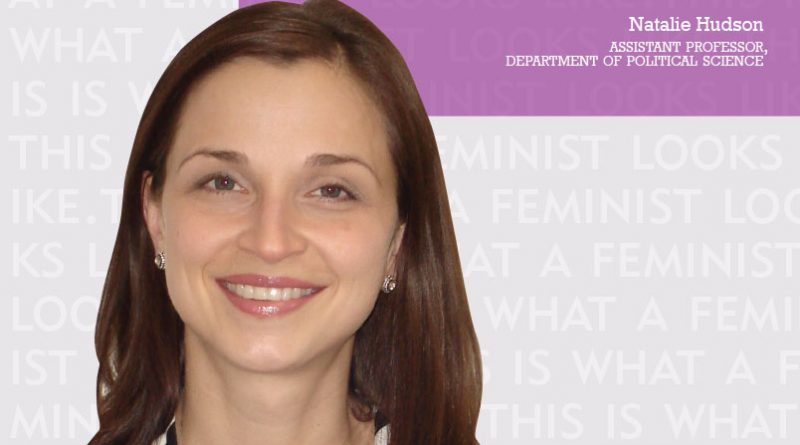UD Professor working with UN on women’s activism
By: Anne Pavlis – Staff Writer
Everyday women in developing countries are affected by conflict and are impacted from numerous issues such as rape being used as a weapon of war. One person advocating for the human rights of these women is Dr. Natalie Hudson.
Dr. Natalie Hudson is a professor at the University of Dayton in the Department of Political Science. She is also the director of the Human Rights Program. While balancing these jobs she also conducts research on women’s activism in the global security arena, particularly in the context of the United Nations.
Hudson’s research focuses on organizational dynamics of women’s activism in the United Nations system and how women have come to embrace and have been impacted by the security discourse in their work for rights and equality. She looks at the role of female in the military and police personnel in UN peacekeeping missions. She is also working on a project evaluating national and regional action plans aimed at implementing the WPS Agenda.
Dr. Hudson became interested in this research after the UN passed the landmark resolution 1325 on women, peace and security. According to the UN, the resolution urges all actors to increase the participation of women and incorporate gender perspectives in all United Nations peace and security efforts.
“My research has been driven by a UN Security Council resolution that was passed in 2000 UNSCR 1325. It was the first resolution that was passed by the council that was related to women and gender specifically. In 50 plus years in existence the council first time. Oh yeah what we do by the way is relevant to the protection of women and women’s participation in the peace process” said Hudson.
This resolution didn’t just talk about women it talked about the gender roles that have impact on why conflict starts and why the endure. Hudson became interested on what this would mean for women’s rights globally.
“What was fascinating about the resolution is the reason the security council cared was the fact that women were an untapped resource they are seen as peacemakers because of gender roles. This did not change gender dynamics if anything it reinforced them” said Hudson.
Dr. Hudson has also served as a consultant to the European Union, the United Nations and various peacebuilding NGOs on work related to the Women, Peace and Security Agenda. During her research she also met women who were directly affected by the resolution and spent time in South Africa and Argentina.
Through her research and the accomplishments she has made to be able to advocate for women in these war zones Hudson is aware of the impact she is able to have on issues that those not as privileged are unable to speak on.
“You can be critical about all sorts of things, but in reality I sit in a privileged position. I recognize my place of privilege “ said Hudson.
Her best advice to being successful is having a great mentor. Hudson still keeps in contact with her mentor that she met while getting her bachelor’s degree at the University of Dayton and she continues to mentor Hudson. Hudson believes that fostering those relationships with people can really help your confidence and guide you to achieve goals that you never thought you would be able to achieve.
Hudson implements her experience and research in the courses that she teaches and the Human Rights program at the University of Dayton. Even though her research is time consuming Dr. Hudson prioritizes her class and teaching students. She has made a profound impact not only through the University and the values that it holds, but globally as well.
Photo courtesy of The University of Dayton.

